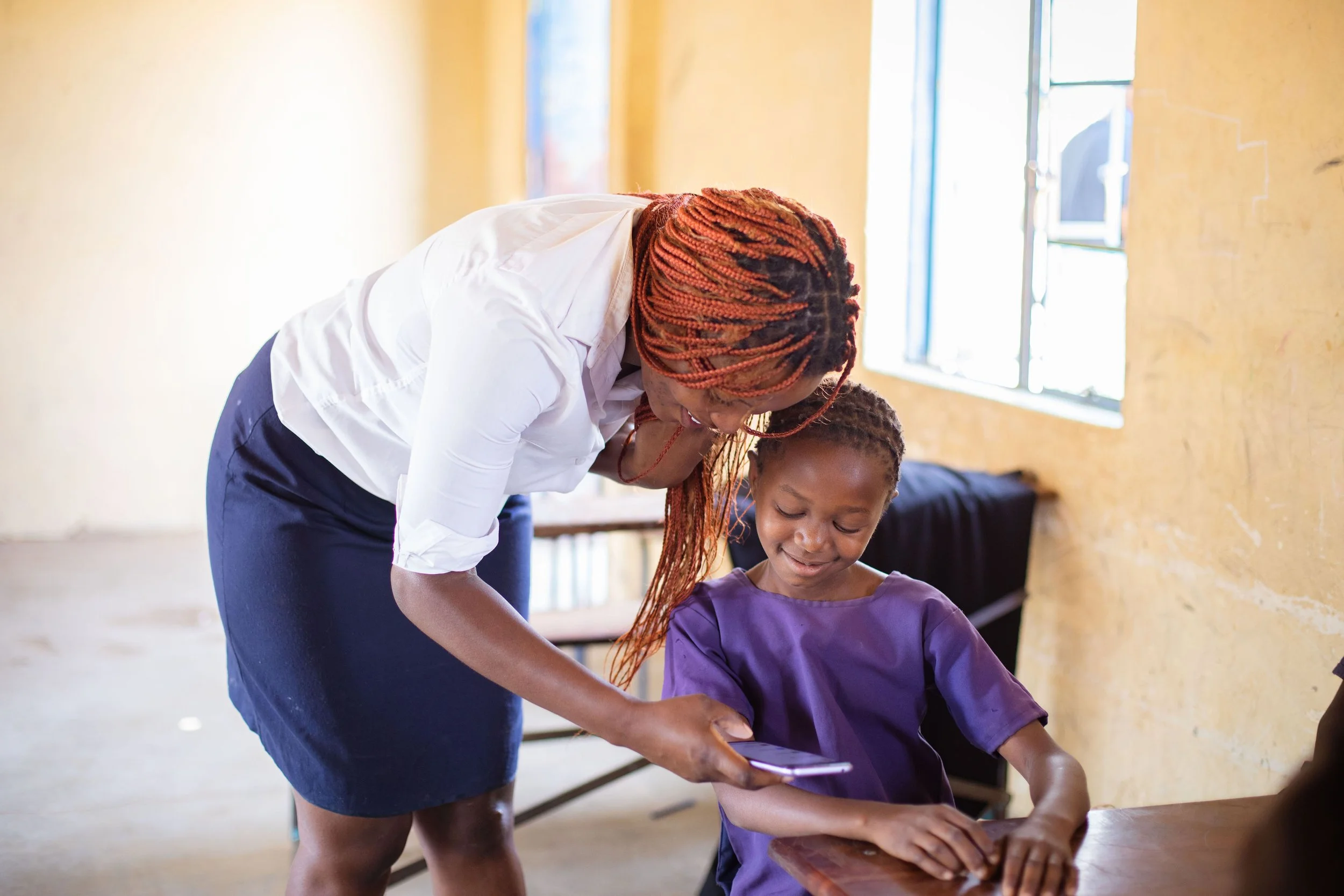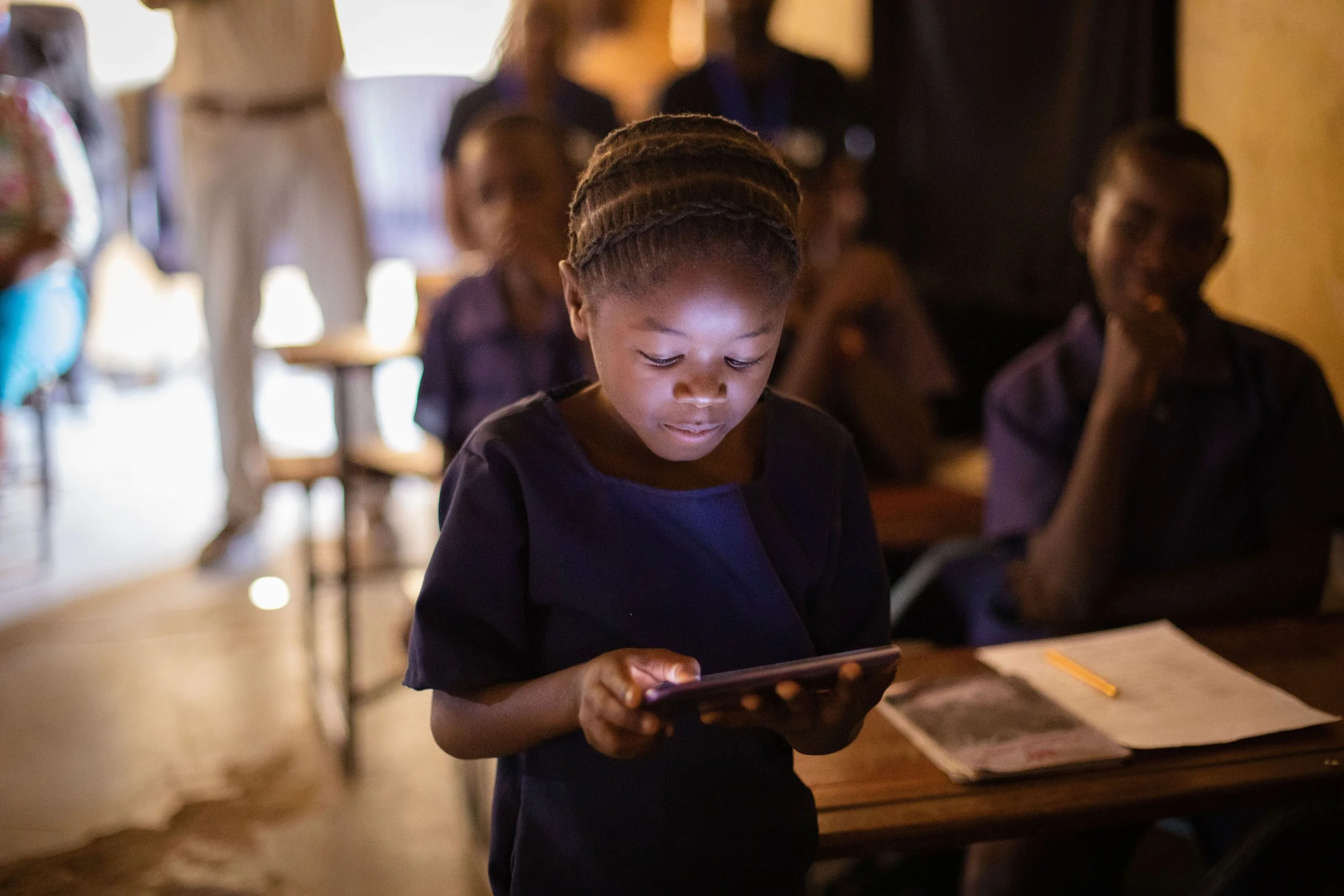Phone-projector model – a sustainable way to support digital transformation
As in many African countries, digital transformation in the Zambian education system requires roll-out of technology at a faster pace than governments and aid agencies are currently funding. Mwabu’s solution to this challenge is the introduction of a phone-projector model which requires less funding in the short-term and is affordable at scale. This model allows limited funds to reach more teachers and learners.
With only one projector in a school and phones or tablets either shared among or owned by teachers, lessons can be enriched with digital content from various sources. Content can be pre-loaded on teacher devices to reduce reliance on often absent or poor connectivity infrastructure and shared with a whole class through a battery-operated projector. Introducing quality content through tech not only advances digital transformation, but also improves learning outcomes [link to Mwabu impact page?].
Where viable, Mwabu can also provide solar solutions to allow charging of devices, a micro-server for offline data collection to enable data-driven decisions as well as internet access through a community WiFi solution [link to post].
To further reduce the financial burden of digital transformation, Mwabu recently partnered with the Public Service Microfinancing Company (PSMFC) in Zambia. Teachers are now able to purchase smartphones or tablets, pre-loaded with Mwabu Learn lesson plans and interactive learner content, through Public Service Microfinancing (PSMF). With a personally owned device teachers are encouraged to take on board digital solutions and benefit from electronic device access beyond the classroom.



